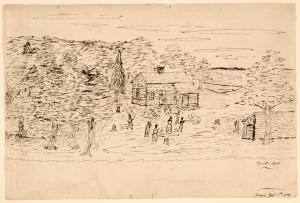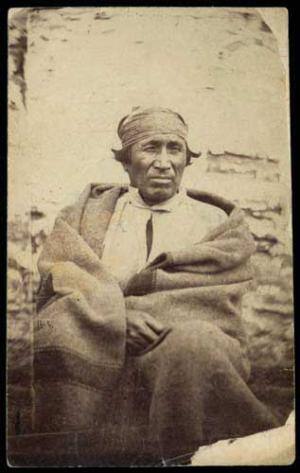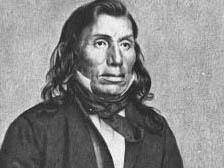 "See!--the white men are like the locusts when they fly so thick that the whole sky is a snowstorm. You may kill one--two--ten; yes, as many as the leaves in the forest yonder, and their brothers will not miss them. Kill one--two--ten, and ten times ten will come to kill you. Count your fingers all day long and white men with guns in their hands will come faster than you can count. . . .Braves, you are little children--you are fools. You will die like the rabbits when the hungry wolves hunt them in the Hard Moon. Taoyateduta is not a coward; he will die with you.”
"See!--the white men are like the locusts when they fly so thick that the whole sky is a snowstorm. You may kill one--two--ten; yes, as many as the leaves in the forest yonder, and their brothers will not miss them. Kill one--two--ten, and ten times ten will come to kill you. Count your fingers all day long and white men with guns in their hands will come faster than you can count. . . .Braves, you are little children--you are fools. You will die like the rabbits when the hungry wolves hunt them in the Hard Moon. Taoyateduta is not a coward; he will die with you.”
Taoyateduta (Little Crow), reacting to news of the Acton incident
The night of the killings at Acton, soldiers’ lodge members gathered to decide whether to declare war. Realizing that their actions would not go unpunished, the men responsible for the killings, along with their chief, Red Middle Voice, sought out Sakpe (Shakopee), who suggested they convene that evening in Little Crow’s village.
Soldiers’ lodge members and leaders met with Little Crow to determine a course of action. Ultimately, the full force of the soldiers’ lodge convinced a reluctant Little Crow to lead them into battle. After one young man accused him of cowardice, Little Crow gave an impassioned speech, which was later reported and written down.



